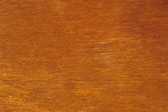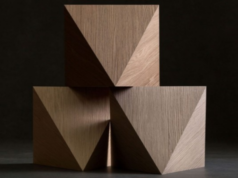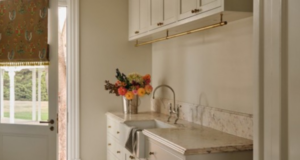
Spotted gum, also known as Lemon-Scented Gum, is native to coastal areas in eastern Australia. As decking, it is attractive, tough and fade-resistant, and be stained and finished quite easily.

Image courtesy of WoodSolutions.
What is Spotted Gum?
The Spotted Gum, also known as the Lemon-Scented Gum, grows all along the New South Wales coastal areas, stretching up into Queensland. The wood is highly prized as a decking material as much for its wavy grain and citrus-like scent as its exceptional durability. Its colouration ranges from a pale hazel to a deep brown and finishes up beautifully. The sapwood is much lighter in colour than the heartwood almost approaching white.
What does Spotted Gum look like?
Though it’s certainly appealing in its natural state, Spotted Gum also takes stains, paints and finishes very well, widening the possible colour options. It is UV resistant too, and won’t fade after years of sun exposure. A light wood with a bold stain would make good use of the timber’s ribbon-like grain, highlighting all the features of the wood without detracting from its surroundings.
Spotted gum is also decay resistant and very easy to work with, cutting down on installation time.
- Attractive wavy grain patterns.
- Lighter to darker shades of brown in colour, the sapwood is lighter than the heartwood.
- Very tough and durable wood, fade resistant.
What is Spotted Gum used for?
Spotted Gum is a great choice for decking, stairs and things like balustrades. It can also be used for pergolas, or structural elements in a home. The interlocked grain makes for an interesting feature on any deck it is used for. Spotted Gum’s longevity and fade resistance will keep the deck looking good for years to come.
|
Advantages
|
Disadvantages
|





